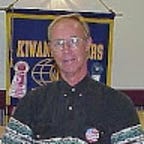Reform One Generation at a Time
Op-Ed by Keith Long * kdlongmany@gmail.com
6/7/2020
I organized a panel at Stetson Law School recently on Black Lives Matter with three Black panelists. Uhuru activist, Erietha Akile, Tampa civil rights attorney, Delano Stewart, and a New York City cop who spent 20 years investigating police abuse for NYPD’s internal affairs. My idea for bringing the conversation to Stetson’s Great Hall was to have the kind of conversation we are having nationally now about the relationship of police to the African American community.
The current national reaction to George Floyd’s murder by a police officer in Minneapolis has been in stark contrast to the national reaction to NFL player Colin Kaepernick’s “taking a knee” protest to the same issue. There is a long history of police targeting African Americans with excessive force, violence, or murder. Now finally, a local government institution, the Minneapolis city council, is taking police reform into its own hands with sweeping reform proposals including reconstituting its police force into a public safety unit.
Up until the Floyd incident, police offenders like Derek Chauvin, were protected from accountability by “the system.” Police Benevolent Associations, state attorneys, judges, they all were the institutional enablers protecting this abuse. This latest, “I can’t breathe,” video of an African American being killed by police perhaps will be a final straw that breaks the institutional resistance to police accountability in this country. It is no accident three fellow police were enablers of Chauvin’s murder of George Floyd. The culture of police institutions is degraded by their “blue code” of silence. That needs to change.
In my CLE course, I remind defense and prosecutor attorneys after the Rodney King incident congress passed the federal patterns and practices legislation (The Violent Crime Control and Law Enforcement Act of 1994, 42 U.S.C. 14141) permitting the DOJ to impose reforms when local police violate civil rights of African Americans.
In the King beating, the police were acquitted (predictably), but eventually, the DOJ patterns and practices consent decree forced the LAPD to hire a chief-as-reformer, Bill Bratton, to come in and root out the Mark Fuhrman’s and other overt racists in their ranks that enforced the blue code of silence protecting bad cops. But Bratton’s reforms came only after the bloodiest riot in LA history and a national debate like we are having now. So, reform is a process that responds to civil disobedience.
The Voting Rights act of 1965 and the Civil Rights Act of 1964 came after murderers of Blacks in the South were protected by local police and local governments with deep racist patterns and practices. There was civil disobedience all over this country in protest. Martin Luther King advocated non-violent civil disobedience.
Before the George Floyd case, the NFL’s response (another institutional resister to change) prevented Kaepernick and others from asserting their individual rights to stand up for an end to racism. Roger Goodell’s original position opposed Kaepernick. Goodell’s new position is a reminder that institutional resistance to reform is to be expected — and is only broken by civil disobedience. Goodell now says this:
“Without black players, there would be no National Football League,” Goodell said. “And the protests around the country are emblematic of the centuries of silence, inequality, and oppression of black players, coaches, fans, and staff.” Good for Roger. He needed some help from the thousands of protestors in streets all over this country and the world. My thought is, “Good boy, Roger.”
It’s a process. Understanding the process is helpful. Institutions need to be reformed, often one generation at a time. The time has come for police institutions to have its generational day of reform. I am ready to have a conversation about defunding police, reconstituting police, in whatever form. I am not afraid of the outcome, indeed, I welcome it.
